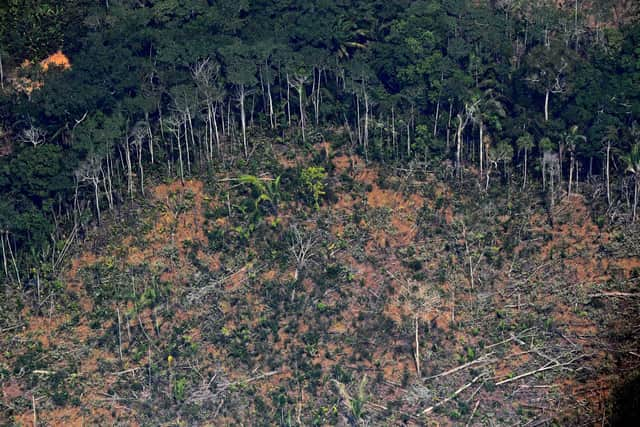Human health is inseparable from the health of our planet - Elsa Maishman
Plagues upon the Earth: Disease and the Course of Human History, by Kyle Harper, puts forward the view that “human health is inseparable from the well-being of the planet itself”.
Dr Harper argues that to understand the history of infectious disease, and to prevent future crises, we must look at it through the lens of ecology and evolution.
Advertisement
Hide AdAdvertisement
Hide AdIn recent centuries, advances from basic hygiene to antibiotics to mass vaccination have caused life expectancy to sky-rocket, changing the way humans live and interact with our planet.


Other developments have meant we live in more densely populated areas than before, and are more interconnected through travel and global supply chains.
These changes have come about so rapidly that the planet could not be expected to keep up - as Dr Harper points out, our “wholesale effort to disinfect the earth for our benefit has unfolded over a few human generations, a mere split second on planetary timescales”.
On top of this, the human contribution of climate change may also influence the spread of infectious disease.
Dr Harper uses the example of mosquitoes, which can spread illnesses including malaria, dengue fever, chikungunya fever, yellow fever and Zika.
If temperatures change due to global warming, mosquitoes may spread to habitats previously not favoured by them, bringing the risk of these diseases to new areas.
Dr Harper issues an urgent call to action: we must learn from the current pandemic to ready ourselves for the next one.
Warnings over the effect of climate change on infectious diseases have been growing in intensity for some time.
Advertisement
Hide AdAdvertisement
Hide AdA report recently published in Nature Climate Change by academics from the UK and United States highlighted this - warning that the melting of Arctic permafrost could release unknown viruses with the potential to mix with bacteria in meltwater and become resistant to antibiotics.
The Covid-19 pandemic, with its probable animal origin, has left no doubt that the progress of humans still pales in comparison to the power of nature.
A message from the Editor:
Thank you for reading this article. We're more reliant on your support than ever as the shift in consumer habits brought about by coronavirus impacts our advertisers.
If you haven't already, please consider supporting our trusted, fact-checked journalism by taking out a digital subscription.
Comments
Want to join the conversation? Please or to comment on this article.